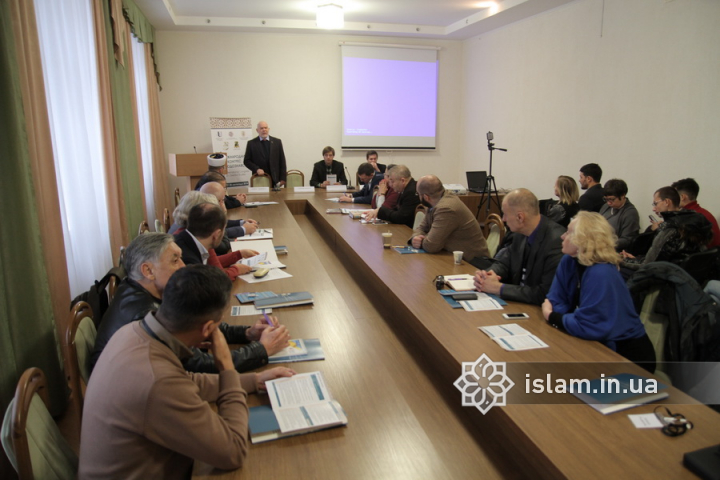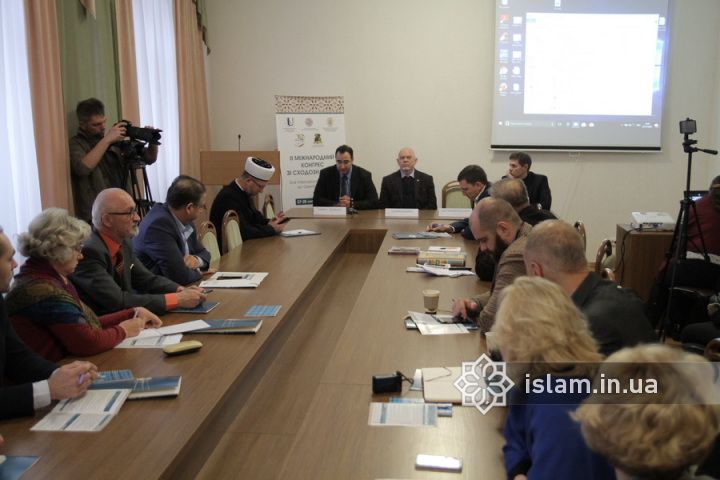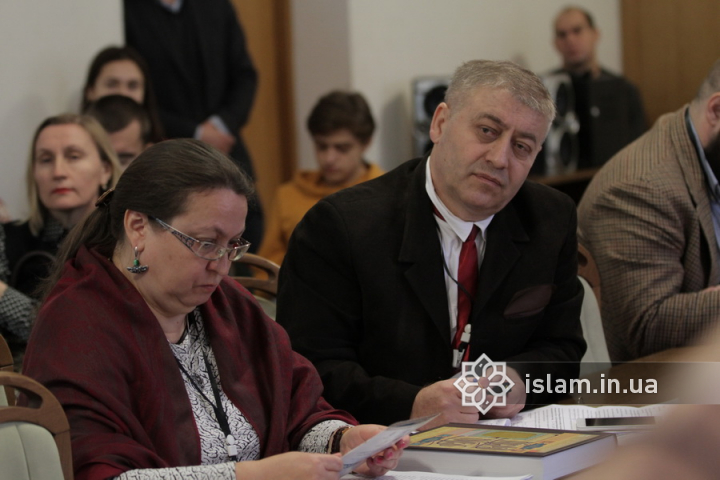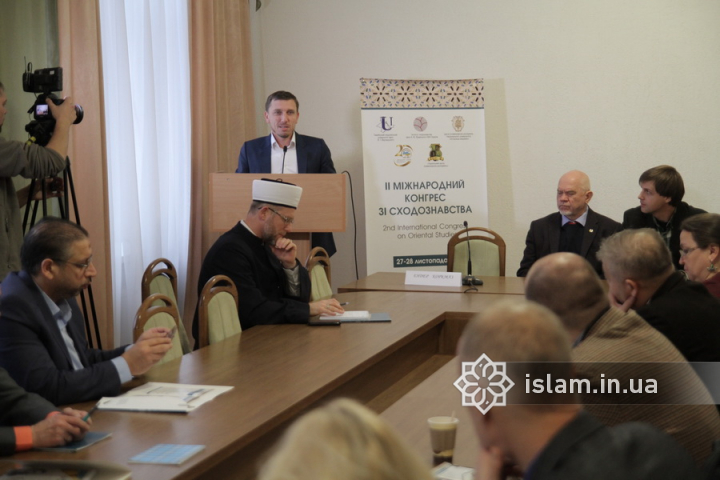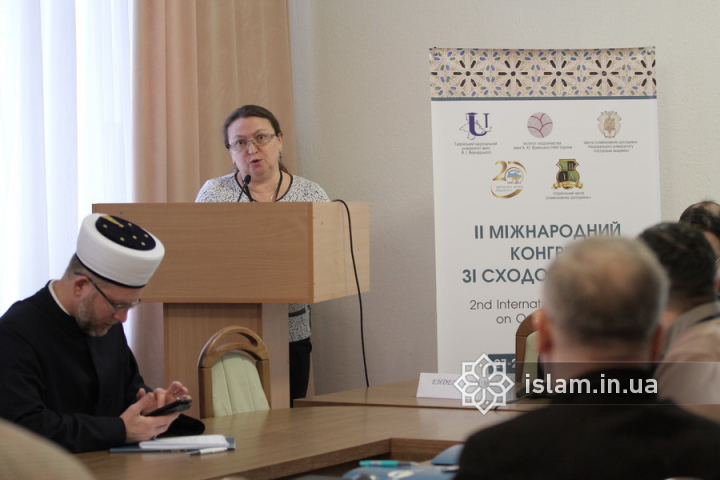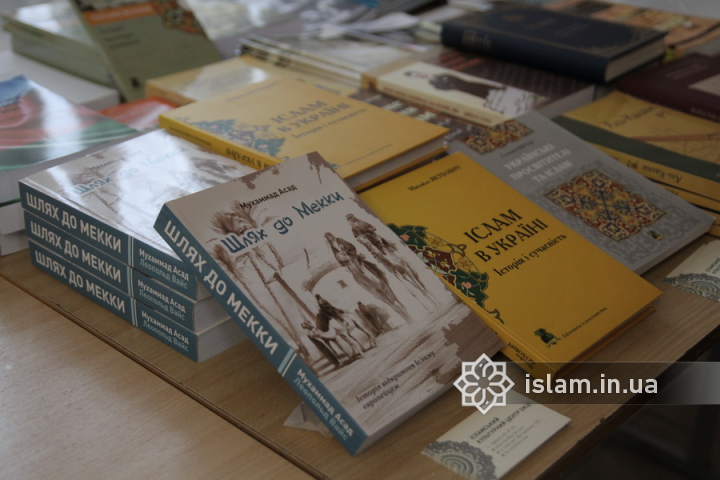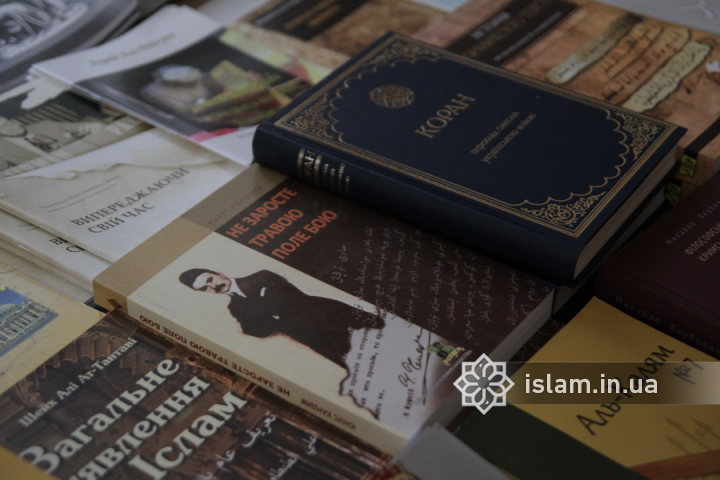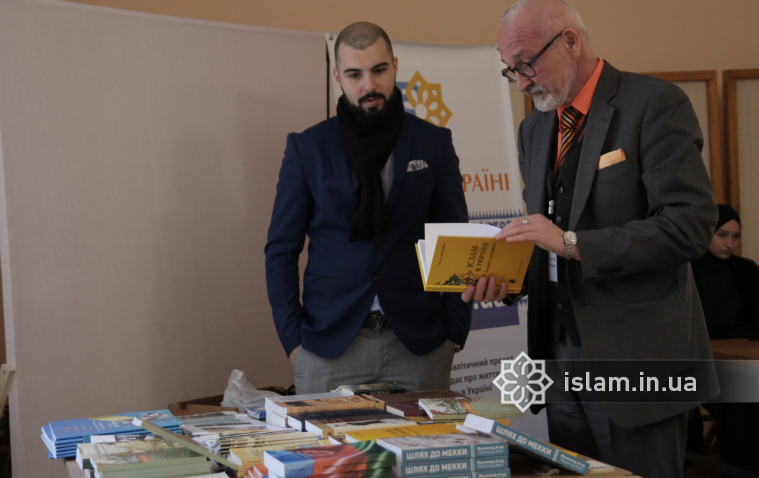On 27 November, a scientific part of II International Congress of Oriental Studies took place at Volodymyr Vernadsky Tavrian National University (excursion for the participants and the closing ceremony were held on the following day, 28 November, — Ed.). The event resulted from the combined efforts of the University, Agatangel Krymsky Institute for Oriental Studies at NAS of Ukraine, Centre of Islamic Studies at National university Ostroh Academy and Ukrainian Centre for Islamic Studies.
Researchers from Ukraine, Poland, Turkey, Lithuania and Romania took part in the gathering. The agenda included both plenary reports and three panel discussions: “Oriental Source Studies and Historiography”, “Formation of Regional and Ethnocultural Identities of Peoples of Crimea and Pryazovia”, and “Islam and Social cultural processes in the Black Sea and Caspian Sea Regions”.
The plenary session included several narrow-focused but scale researches.
Mr.Suer Eker from Başkent University (Ankara, Turkey) presented a multi-language dictionary project covering 12 Turk languages (and illustrated the principle of its arrangement with the example of translation from Kazakh to Hakasy language). Still, the final version is expected to cover 16 Turk languages, and solve the problem of indirect translation (through some third language) from one Turk language to another.
Ms.Galina Miskiniene of Vilnius University (Lithuania) spoke about Arabic-script Slavonic manuscripts of Lithuanian Tatars, a phenomenon originated in mid-XVI century due to the loss of their native Kipchak language by Tatars resettled to the Grand Duchy of Lithuania, and lack of knowledge of the classic Arabic, hence the need for translations of text (mostly theological) to local Slavonic languages with common Arabic symbols. Among the most popular non-Islamic translations written down with Arabic letters was the King David’s Book of Psalms.
Mr.Oleksandr Sereda of Agatangel Krymsky Institute for Oriental Studies spoke about Ukrainian-Ottoman diplomacy as reflected in the written sources of XVII–XVIII; Mr.Vasile Rotaru from Bucharest National University of Political Studies and Public Administration (Romania) presented his views on the Role of Islam in constructing divergent Identity and maintaining Russian influence in the former Soviet space; and Ms.Marzena Godzińska (Warsaw University, Poland) told about origins and dusk of a Polish village founded in then Ottoman Empire by Polish military settlers who wanted to join the Ottoman army and free their Homeland from the Russian Empire.
After the plenary session was over, the researchers separated for panel discussions.
In terms of the first panel called “Oriental Source Studies and Historiography”, there was a number of reports presented: Oksana Vasyliuk (Agatangel Krymsky Institute for Oriental Studies) spoke about correspondence between Agatangel Krymsky and Volodymyr Vernadsky; Ms.Natalia Zub (Agatangel Krymsky Institute for Oriental Studies) spoke about Kyiv Muslim community in late XIX-early XX; Mr.Viacheslav Stanislavsky (Institute of History of NAS of Ukraine) spoke about the XVIII century Russian-Turkish trans-Black Sea trade; Ms. Mariia Tortika (Kharkiv State Academy of Culture) spoke about the Multicultural basics of the Bulgarian socialist centrism between the Scylla of Western European modernisation and the Charybdis of Easter Mediterranean traditionalism; and Mr.Volodymyr Pidvoiny (Volodymyr Vernadsky National Library of Ukraine) presented his analysis of description markers of the XIX century Crimean narrative (based on Agatangel Krymsky’s personal library).
The researchers who took part in the second panel called “Formation of Regional and Ethnocultural Identities of Peoples of Crimea and Pryazovia” spoke about the influence of Milli Firka on Crimean tatar education (Mr.Oleh Bubenok, Agatangel Krymsky Institute for Oriental Studies), unknown 1825–1831 documents of Tavrian Muslim Religious Administration (Ms.Olha Mavrina, Agatangel Krymsky Institute for Oriental Studies). Karmanli literatire and evolution of Urum language (Mr.Yevhen Chernukhin, Institute of Hisory fo Ukraine at NAS of Ukraine), Political reasons for resettlement of Crimean Christians to Northern Pryazovia in late XVIII (Ms.Anna Gedio, Kyiv Borys Hrinchenko University), Crimean Tatar expat community of Turkey in terms of contemporary crisis at their historic Homeland (Mr.Denys Zolotariov, Agatangel Krymsky Institute for Oriental Studies), ethnic structure of the Crimean nomad tribes in late XIII -XIV century (Mr.Vladyslav Hulevych, Administration of the Verkhovna Rada of Ukraine), and ethnic-cultural identity of Turk-speaking Greeks of Pryazovia (Ms.Hanna Roh, Agatangel Krymsky Institute for Oriental Studies).
In terms of the third panel called “Islam and Social cultural processes in the Black Sea and Caspian Sea Regions”, Mr.Marek Dziekan from Lodz University (Poland) contemplated if Literature even existed in XIX century Morocco; Mr.Danylo Radivilov (Agatangel Krymsky Institute for Oriental Studies) analysed relations between the State and the Muslim organisations in Russian Federation, based on the statutory records of the official Muslim organisations; Mr.Mykhailo Yakubovych (Centre of Islamic Studies at National university Ostroh Academy) presented a review of Crimean Tatar written heritage kept at libraries of the continental Ukraine; Bohdan Kaliussky (Centre of Islamic Studies at National university Ostroh Academy) spoke about the past and the present of Islam in Armenia, Mr.Serhii Danylov (Agatangel Krymsky Institute for Oriental Studies) presented the survey findings on people’s knowledge of Islam and Muslims in Southern Kherson region; Ms.Yana Korobko (Kyiv) spoke about the basics of psychoanalysis and interpretation of dreams in Islam; Mr.Yaroslav Pylypchuk (Drahomanov National University) analysed the Berber tribes in IV — VIII, between the Roman and Arab rule; and Margarita Aragioni researched the origins of Chimean Tatar community of the Greek village of Granitne (Karan) in Donets’k region in late XX.

